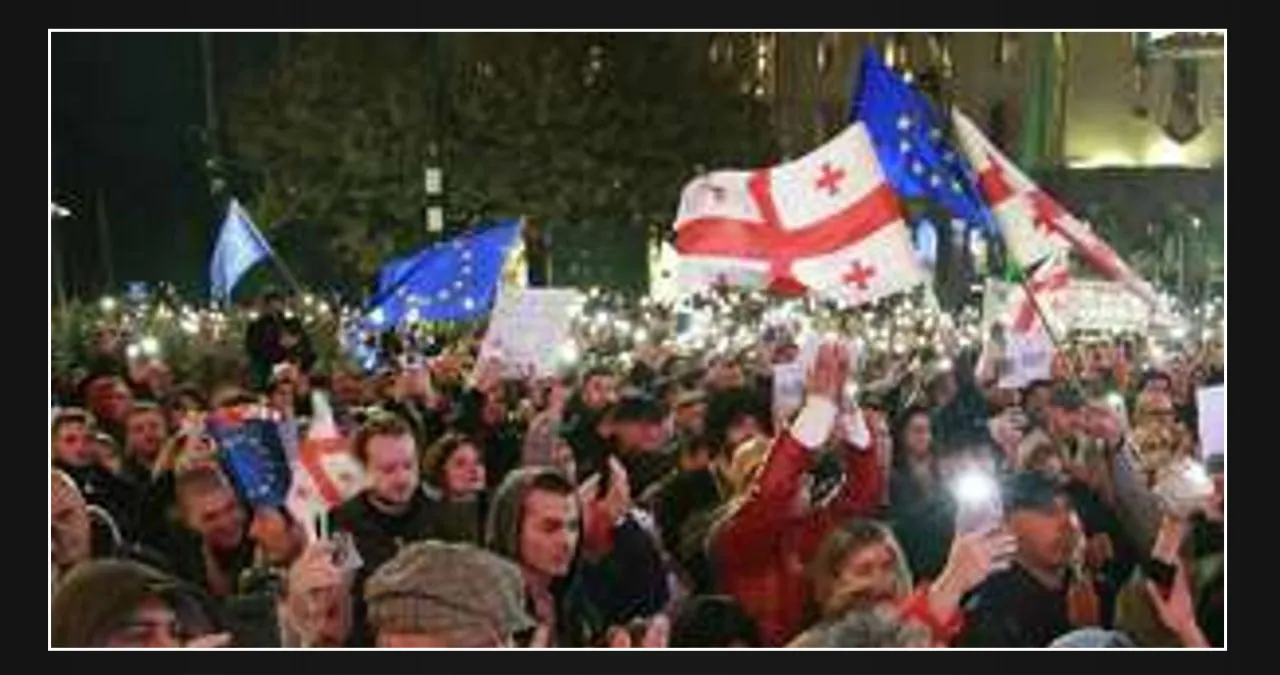In ongoing protests against the ruling party’s claim of victory in the parliamentary election on October 26, thousands of opposition supporters gathered in Tbilisi, Georgia’s capital. Allegations that Russia was involved in tampering with the election results have fueled the protests.
A crowd of protesters gathered outside the Georgian parliament, waving both Georgian and European Union flags. Their demands were unambiguous: they called for new parliamentary elections that would be under the supervision of foreign observers. Additionally, they demanded an investigation into the alleged election fraud that had taken place.
Giorgi Vashadze, the leader of the Unity National Movement Coalition, has made a resolute commitment that the opposition will persistently fight until the very end.
“We refuse to accept the election results as they were heavily manipulated,” he stated firmly. “Our objective is to hold new elections and establish a new government that will lead Georgia towards European integration.”
Opposition leaders have made a resolute commitment to boycott parliament sessions and organize frequent protests until their demands are fulfilled.
The Central Election Commission has announced that the governing Georgian Dream party has secured approximately 54% of the vote. The party’s leaders have vehemently denied the opposition’s allegations of electoral misconduct.
The election took place in a highly tense environment that included instances of bribery, double voting, and physical violence, according to European election observers.
The opposition has leveled accusations against Georgian Dream, a political party founded by Bidzina Ivanishvili, a wealthy entrepreneur with ties to Russia, claiming that it has grown more authoritarian and aligned with Moscow. In recent times, the party has implemented legislation reminiscent of the Kremlin’s approach to suppressing freedom of speech and LGBTQ+ rights.
President Salome Zourabichvili, who has dismissed the official results, believes that Georgia has succumbed to pressure from Moscow in its pursuit of EU membership. Zourabichvili, who occupies a mainly symbolic role, has called on the United States and the EU to back the protests.
Washington and Brussels officials have called for a thorough investigation of the election, while the Kremlin has dismissed the allegations of interference.
Many people viewed the Georgian parliamentary election as a crucial test of the nation’s aspirations to join the European Union. The EU, however, suspended Georgia’s membership application after it passed a “foreign influence law” akin to that of Russia in June.
Lawmakers from several EU countries showed their support for protesters by attending Monday’s rally.
Zygimantas Pavilionis, a member of the Lithuanian parliament, passionately expressed his concerns at the rally, emphasizing that someone is attempting to undermine the freedom, democracy, and membership of the country in the EU and NATO. He urged the attendees not to surrender and to fiercely defend their rights and values.

